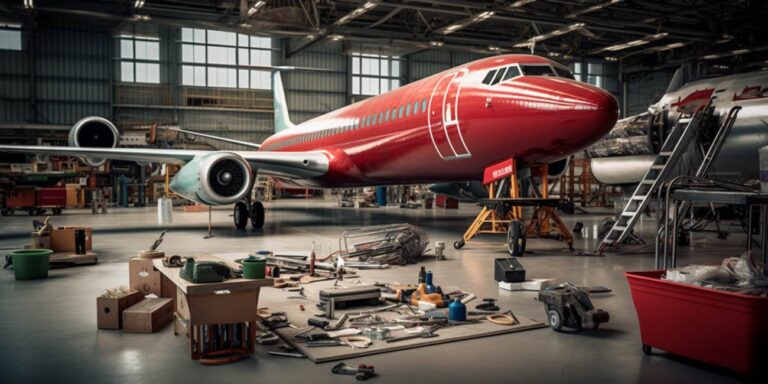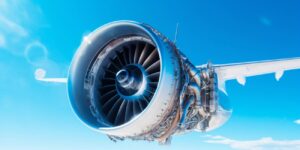The education journey often involves both classroom instruction and hands-on experience, equipping technicians with the necessary skills to diagnose, repair, and maintain aircraft. These programs cover a wide range of topics, including aerodynamics, electrical systems, and turbine engines, preparing individuals for the diverse challenges they may encounter in their responsibilities.
Speaking of responsibilities, aircraft technicians are tasked with inspecting and repairing various components of an aircraft, ensuring compliance with safety regulations. They conduct routine maintenance checks, troubleshoot issues, and perform necessary repairs to keep aircraft in optimal condition. Their responsibilities extend to maintaining detailed records of inspections and repairs, contributing to the overall safety and reliability of the aviation industry.
One of the key responsibilities of an aircraft technician is to conduct regular inspections based on manufacturer guidelines and regulatory requirements. These inspections involve a meticulous examination of aircraft structures, engines, and systems to identify and rectify any potential issues. Through these efforts, they contribute significantly to aviation safety.
As for salary, aircraft technicians are often well-compensated for their specialized skills and the critical nature of their work. The salary can vary based on factors such as experience, location, and the type of aircraft worked on. On average, an aircraft technician can expect a competitive salary that reflects the technical expertise and responsibility associated with the role.
In summary, an aircraft technician undergoes specialized education to take on the crucial responsibilities of inspecting, repairing, and maintaining aircraft. Their dedication contributes to aviation safety, and in return, they enjoy a rewarding salary reflective of their expertise.
Aircraft technician education requirements and training options
An aircraft technician plays a crucial role in ensuring the safety and functionality of aircraft. To embark on this exciting career path, individuals need to meet specific education requirements and undergo specialized training. Let’s delve into the key aspects of becoming an aircraft technician.
Education Requirements: A high school diploma or equivalent is typically the minimum educational requirement for aspiring aircraft technicians. However, many employers prefer candidates with post-secondary education, such as an associate’s degree in aviation maintenance or a related field. These educational programs provide a comprehensive foundation in aircraft systems, electronics, and maintenance procedures.
FAA Certification: The Federal Aviation Administration (FAA) sets the standards for aircraft maintenance. To work as an aircraft technician in the United States, individuals must obtain the appropriate FAA certifications. The two main certifications are the Airframe and Powerplant (A&P) certificate. Achieving these certifications involves passing written and practical exams that demonstrate proficiency in maintaining and repairing aircraft.
On-the-Job Training: While formal education and certifications are crucial, hands-on experience is equally important in the aviation industry. Many aircraft technicians gain practical skills through on-the-job training programs offered by airlines, maintenance facilities, or aviation companies. This practical training allows individuals to apply theoretical knowledge in real-world scenarios, enhancing their troubleshooting and problem-solving abilities.
Specialized Training: Aircraft technology is constantly evolving, and technicians need to stay updated with the latest advancements. Many technicians pursue specialized training and certifications in specific aircraft models or technologies. This additional training not only enhances their expertise but also makes them more competitive in the job market.
Soft Skills: In addition to technical skills, aircraft technicians should possess certain soft skills to excel in their roles. Effective communication, attention to detail, and the ability to work in a team are essential. These skills contribute to a positive working environment and ensure that tasks are completed accurately and efficiently.
Career Advancement: As aircraft technicians gain experience and accumulate hours of work, they may have opportunities for career advancement. This could include supervisory roles, quality control positions, or specializing in specific areas of aircraft maintenance. Continued education and training are often key factors in advancing one’s career in this dynamic field.
Aircraft technician salary and job outlook
An aircraft technician plays a pivotal role in ensuring the smooth functioning of the aviation industry. These skilled professionals, often referred to as mechanics, are responsible for the maintenance, repair, and inspection of aircraft to guarantee their safety and operational efficiency.
One of the key aspects that attract individuals to pursue a career as an aircraft technician is the salary offered in this field. The compensation for these professionals is generally competitive, reflecting the critical nature of their work. Aviation companies value the expertise of skilled technicians, and as a result, they are willing to offer attractive salaries to retain top talent.
When delving into the career of an aircraft technician, it’s crucial to understand the job outlook. The demand for these professionals is influenced by the growth and expansion of the aviation industry. As air travel continues to rise globally, the need for skilled mechanics becomes more pronounced. This surge in demand translates to promising prospects for individuals considering or already engaged in this career.
Examining the prospects further, it’s evident that the aviation sector offers a stable and enduring career path for technicians. The ongoing technological advancements in aircraft require technicians to stay updated with the latest developments. This constant evolution not only ensures job security but also presents opportunities for career growth and specialization.
For those contemplating a career in aviation maintenance, it’s beneficial to explore the various sectors within the industry. Aircraft technicians can find employment in commercial airlines, private aviation companies, or even with defense contractors. This diversity not only provides options for specialization but also opens up avenues for individuals to find a niche that aligns with their interests and skills.
Additionally, the role of an aircraft technician goes beyond mere mechanical skills. These professionals often collaborate with engineers and other aviation experts, contributing to a dynamic and collaborative work environment. This interaction fosters a holistic understanding of aircraft systems and enhances the overall skill set of technicians, further solidifying their career longevity.
Aircraft technician daily responsibilities and tasks
An aircraft technician’s daily responsibilities revolve around ensuring the optimal functioning of planes. These skilled professionals play a pivotal role in the maintenance and repair of aircraft, employing their expertise in mechanics to guarantee safety and efficiency.
One of the primary responsibilities of an aircraft technician is conducting routine maintenance checks on various plane components. This involves inspecting engines, avionics systems, and other crucial parts to identify potential issues before they escalate. Maintenance tasks are not only about fixing problems but also about preventive measures to ensure the longevity and reliability of the aircraft.
When it comes to repairs, aircraft technicians are the unsung heroes. They employ their mechanical prowess to troubleshoot and fix any malfunctions that might arise during flight or on the ground. Whether it’s addressing issues with the landing gear, hydraulics, or electronic systems, these professionals are well-versed in tackling a myriad of challenges to keep planes in top-notch condition.
The mechanics aspect of an aircraft technician’s role involves a deep understanding of the intricacies of aircraft systems. From the complexities of jet engines to the nuances of avionics, these experts must be adept at diagnosing problems accurately and applying effective repairs. Their knowledge extends to interpreting technical manuals, schematics, and diagnostic tools to pinpoint and rectify issues.
Ensuring compliance with aviation regulations is another critical facet of an aircraft technician’s responsibilities. They must adhere to stringent safety standards and follow specified protocols during maintenance and repair procedures. This adherence is paramount in guaranteeing the overall safety and airworthiness of the planes under their care.






